National and Local Holidays in Spain for 2025
Thursday, December 19, 2024
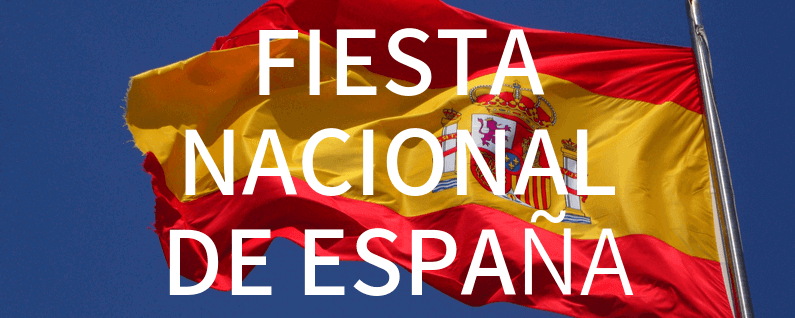
Spain is known for its rich cultural heritage and diverse traditions, and this is reflected in its numerous national and local holidays. In 2025, Spain will once again celebrate a wide array of holidays that are observed both nationwide and regionally within its autonomous communities. Below is a detailed list of these holidays, categorized by national and local observances.
National Holidays
These holidays are recognized across the entire country of Spain:
-
New Year's Day (Año Nuevo)
- Date: January 1, 2025
- Significance: Celebrates the beginning of the new year.
-
Epiphany (Día de los Reyes)
- Date: January 6, 2025
- Significance: Commemorates the visit of the Magi to the Christ child.
-
Good Friday (Viernes Santo)
- Date: April 18, 2025
- Significance: Observed during Holy Week, it commemorates the crucifixion of Jesus Christ.
-
Labor Day (Fiesta del Trabajo)
- Date: May 1, 2025
- Significance: Celebrates the contributions of workers.
-
Assumption of Mary (Asunción de la Virgen)
- Date: August 15, 2025
- Significance: Honors the assumption of the Virgin Mary into heaven.
-
National Day of Spain (Fiesta Nacional de España)
- Date: October 12, 2025
- Significance: Celebrates the day Christopher Columbus first arrived in the Americas.
-
All Saints' Day (Día de Todos los Santos)
- Date: November 1, 2025
- Significance: Honors all saints and deceased loved ones.
-
Constitution Day (Día de la Constitución)
- Date: December 6, 2025
- Significance: Commemorates the anniversary of the Spanish constitution.
-
Immaculate Conception (Inmaculada Concepción)
- Date: December 8, 2025
- Significance: Celebrates the conception of the Virgin Mary without original sin.
-
Christmas Day (Navidad)
- Date: December 25, 2025
- Significance: Celebrates the birth of Jesus Christ.
Local Holidays by Autonomous Community
Spain's autonomous communities also have their own unique holidays, based on regional traditions and historical events. Below are some of the key local holidays for 2025:
Andalucía
- Day of Andalusia (Día de Andalucía)
- Date: February 28, 2025
- Significance: Celebrates the referendum for Andalusian autonomy.
Aragón
- Saint George's Day (Día de San Jorge)
- Date: April 23, 2025
- Significance: Honors Aragón's patron saint, Saint George.
Asturias
- Asturias Day (Día de Asturias)
- Date: September 8, 2025
- Significance: Celebrates the Virgin of Covadonga and the region's identity.
Balearic Islands
- Day of the Balearic Islands (Día de les Illes Balears)
- Date: March 1, 2025
- Significance: Commemorates the Statute of Autonomy of the Balearic Islands.
Basque Country (Euskadi)
- Basque Country Day (Euskal Herriko Eguna)
- Date: October 25, 2025
- Significance: Celebrates the Basque culture and autonomy.
Canary Islands (Canarias)
- Canary Islands Day (Día de Canarias)
- Date: May 30, 2025
- Significance: Marks the anniversary of the first session of the Canary Islands' parliament.
Cantabria
- Cantabria Day (Día de Cantabria)
- Date: August 15, 2025
- Significance: Celebrates the region's heritage and customs.
Castilla-La Mancha
- Castilla-La Mancha Day (Día de Castilla-La Mancha)
- Date: May 31, 2025
- Significance: Honors the autonomy of Castilla-La Mancha.
Castilla y León
- Community Day of Castilla y León (Fiesta de la Comunidad de Castilla y León)
- Date: April 23, 2025
- Significance: Commemorates the Battle of Villalar.
Catalonia (Catalunya)
- Saint George’s Day (La Diada de Sant Jordi)
- Date: April 23, 2025
- Significance: A cultural celebration akin to Valentine’s Day.
- Catalonia National Day (La Diada Nacional de Catalunya)
- Date: September 11, 2025
- Significance: Commemorates the fall of Barcelona during the War of Spanish Succession.
Extremadura
- Day of Extremadura (Día de Extremadura)
- Date: September 8, 2025
- Significance: Celebrates the Virgin of Guadalupe and regional pride.
Galicia
- Saint James' Day (Día de Santiago)
- Date: July 25, 2025
- Significance: Honors Saint James, patron saint of Galicia.
La Rioja
- La Rioja Day (Día de La Rioja)
- Date: June 9, 2025
- Significance: Celebrates the autonomy of La Rioja.
Community of Madrid (Comunidad de Madrid)
- Madrid Day (Día de la Comunidad de Madrid)
- Date: May 2, 2025
- Significance: Commemorates the uprising against French rule in 1808.
Murcia
- Day of the Region of Murcia (Día de la Región de Murcia)
- Date: June 9, 2025
- Significance: Marks the anniversary of the Statute of Autonomy of the Region of Murcia.
Navarre (Navarra)
- Day of Navarre (Día de Navarra)
- Date: December 3, 2025
- Significance: Honors San Francisco Javier, the patron saint of Navarre.
Valencia Community (Comunitat Valenciana)
Ceuta and Melilla
In 2025, Spain will celebrate an array of national and local holidays, each reflecting the country's multifaceted cultural and historical landscape. Whether commemorating significant historical events, cultural traditions, or religious observances, these holidays offer both residents and visitors alike an opportunity to experience the rich tapestry of Spanish life.
Make sure to plan your travels and activities around these dates to fully immerse yourself in the vibrant celebrations that span the length and breadth of Spain!
 1
Like
Published at 5:39 PM Comments (0)
1
Like
Published at 5:39 PM Comments (0)
Considerations for Foreigners Winning Spain's Christmas Lottery
Friday, December 13, 2024
The joy and anticipation surrounding Spain's Christmas Lottery, known as "El Gordo," captivates countless homes each year as friends and families gather around to watch the draw and dream of winning. However, a common query often arises: What if a foreigner wins "El Gordo"? And what happens if the winner is a Spanish citizen residing abroad? Let's delve into these scenarios to clarify what foreigners should expect.
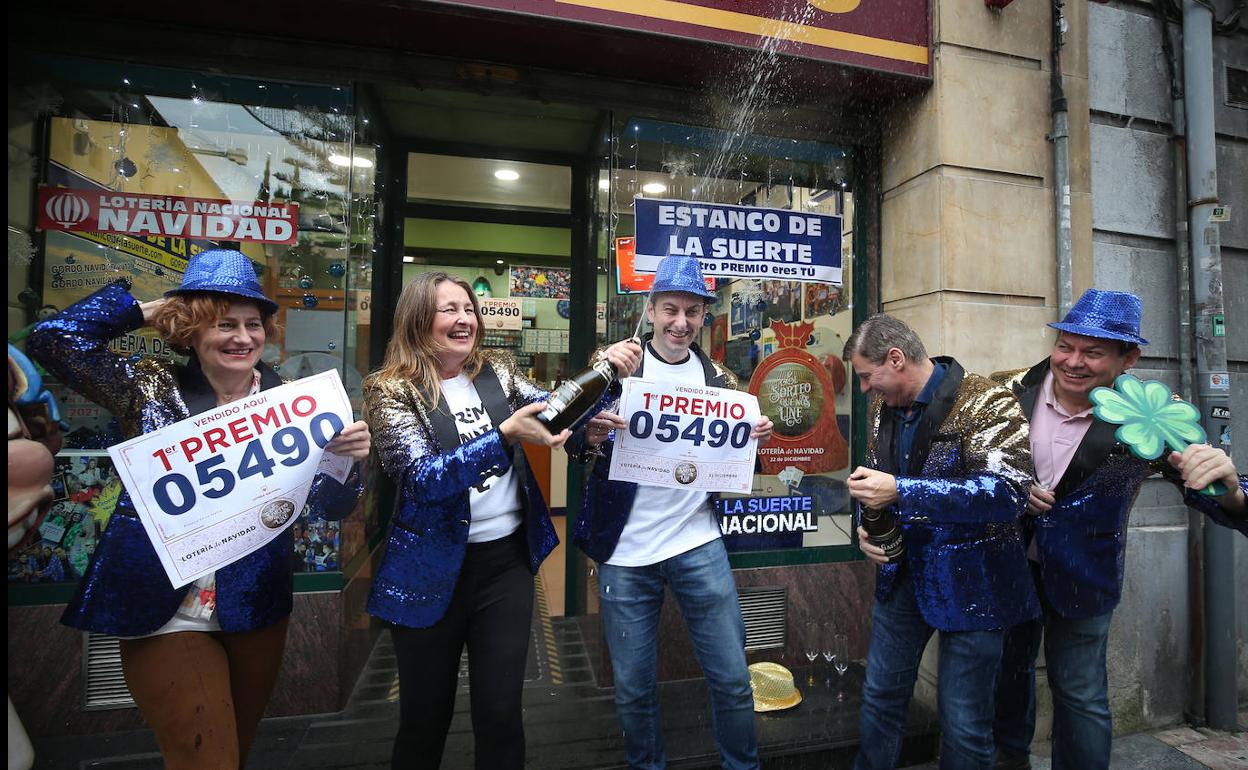
The Extraordinary Christmas Lottery is Spain's most significant annual lottery event, sparking excitement and hope across the nation. This massive lottery not only brings the thrill of potential wealth but also nurtures communal bonds, as people often participate in syndicates and share tickets. Scheduled for 22nd December, the draw has become a cherished tradition, and its remarkable prize distribution attracts both locals and visitors alike.
Can Foreigners Buy and Win the Christmas Lottery?
Eligibility to Purchase Tickets
One of the first questions is whether a foreigner can legally purchase a ticket for the Spanish Christmas Lottery. The answer is straightforward: Yes. As long as the individual is of legal age, they are allowed to buy a lottery ticket. This inclusivity is one of the reasons why the lottery enjoys such wide participation.
Winning and Claiming the Prize
The real intricacies emerge when discussing the collection of winnings. There are different procedures depending on the amount won:
-
Prizes Below €2,000:
-
If a foreigner wins a prize below €2,000, the process is relatively straightforward. These smaller prizes can be claimed online, which is particularly convenient for those who purchased their ticket digitally. Notably, winners of smaller prizes can also claim their winnings via Bizum, a popular mobile payment service in Spain. Otherwise, you can go to any lottery administration to collect your prize.
-
Prizes Above €2000 and €40,000:
-
For prizes exceeding €2000, you will need to go to a Spanish bank to collect the prize winnings.
-
For larger prizes exceeding €40,000, the procedure is slightly more complex due to the tax implications. Winners are required to claim their prize at a bank affiliated with the Spanish tax agency. This process entails a 20% tax on the winnings, and the required documentation must be provided.
-
In practical terms, this means that a foreign winner would need to travel back to Spain or appoint a representative to collect the prize on their behalf. The representative would need to present the necessary documents to the bank to ensure the proper tax is deducted and the winnings are released.
Tax Implications and Considerations
Understanding the tax obligations is crucial for potential lottery winners. In Spain, winnings above €40,000 are subject to a 20% tax, deducted at the source when the prize is claimed from a Spanish bank. The tax policy is uniform regardless of the winner's nationality or residence. It’s worth noting that once the tax is deducted, the prize is considered net of Spanish taxes, simplifying matters for those winners who live in countries that have different taxation rules for foreign income.
The allure of Spain's Christmas Lottery transcends borders, pulling in hopefuls from all corners of the globe. The key takeaways for anyone who wins, irrespective of nationality, are to understand where and how they need to claim their prize and be aware of the tax obligations.
For a foreign winner, the most practical advice includes reviewing who could act as a representative in Spain ready to handle the prize claim if necessary.
Looking Forward to the Draw
As December 22nd approaches, the anticipation builds. While the procedures for claiming prizes might seem daunting, they should not overshadow the joy and excitement that the lottery brings. The Spanish Christmas Lottery remains a symbol of hope and celebration, uniting people in dreams of luck and fortune.
To stay updated on all the details regarding the Spanish Christmas Lottery, including the latest news and tips on how to claim your winnings, follow trusted sources and prepare accordingly. After all, the magic of "El Gordo" is only a ticket away, no matter where in the world you reside.
Stay informed, and good luck!
 1
Like
Published at 10:08 PM Comments (5)
1
Like
Published at 10:08 PM Comments (5)
Spain's Christmas Lottery: How it works
Thursday, December 5, 2024
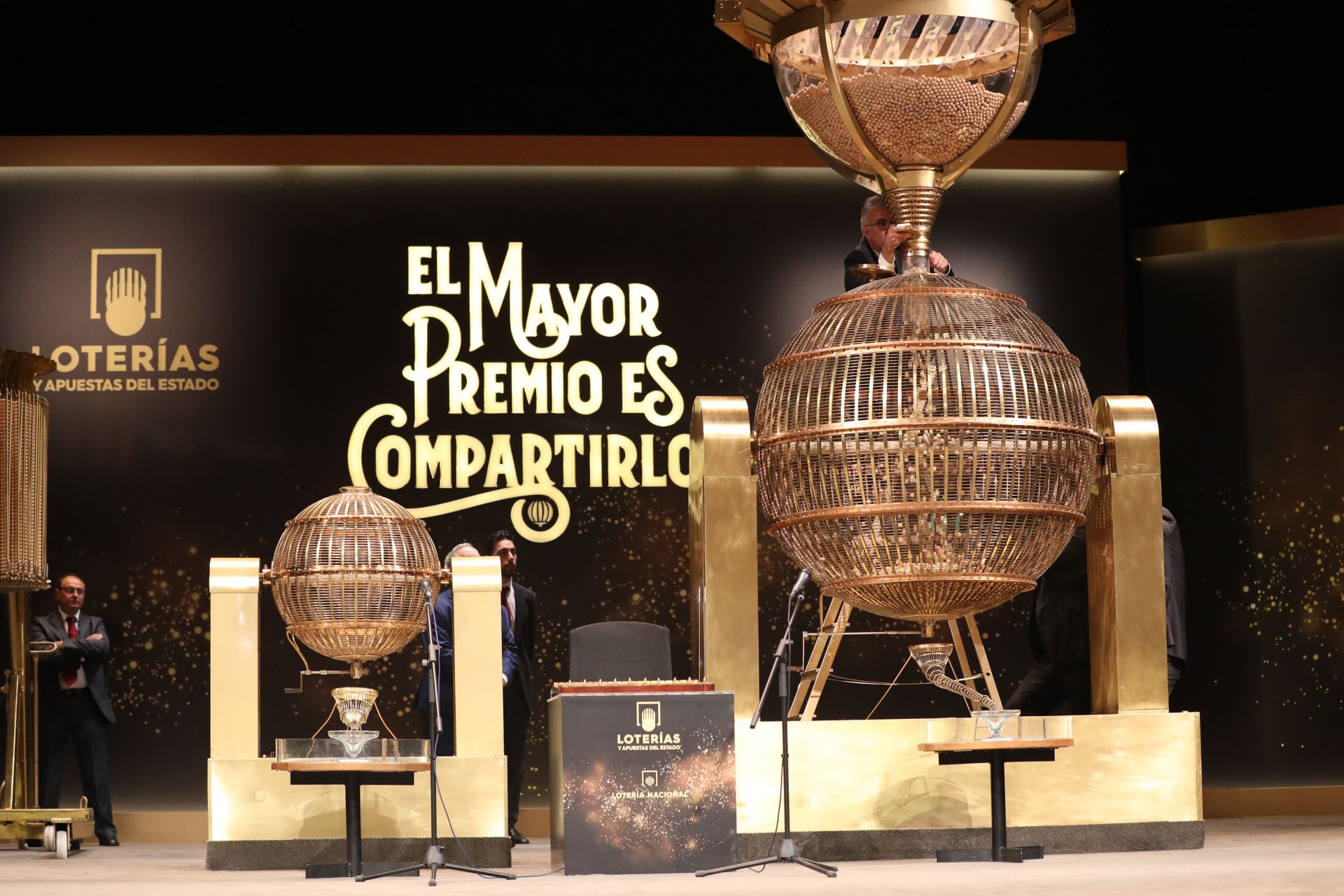
Spain's Christmas lottery, affectionately known as "El Gordo" (The Fat One), is one of the world's oldest and most massive lottery draws. Established in 1812, this lottery is not only a significant part of Spanish Christmas traditions but also a major source of excitement due to its enormous prize pool. The draw takes place annually on December 22, and it captivates the entire nation.
How It Works
1. Ticket Structure
-
Billetes and Décimos: The El Gordo tickets are divided into "billetes" and "décimos." A full ticket, called a "billete," is quite expensive and costs €200. However, most participants opt to purchase a portion of a ticket, known as a "décimo," which costs €20. Each billete is divided into 10 décimos to make it more affordable.
-
Numbers and Series: Each billete is printed with a unique five-digit number ranging from 00000 to 99999. To increase the odds and diversity, each number is printed multiple times in different "series." For instance, a specific number like 12345 might exist in numerous series, each treated as a separate ticket.
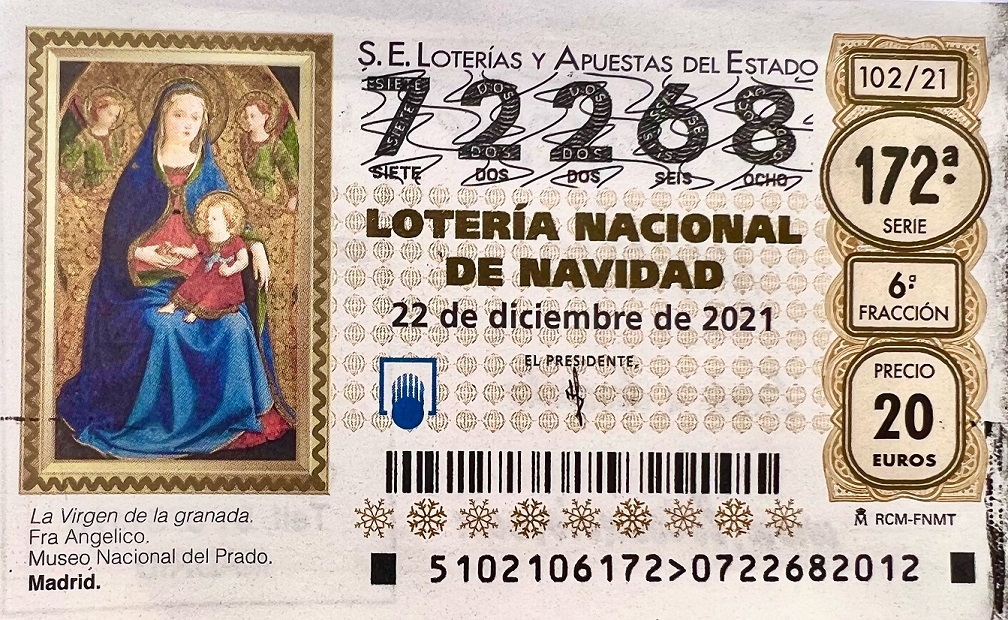
2. Purchasing Tickets
Tickets are sold throughout Spain at designated lottery retailers, called "administraciones de lotería," and online. Offices and organizations, including clubs and charities, often buy large quantities of tickets for resale.
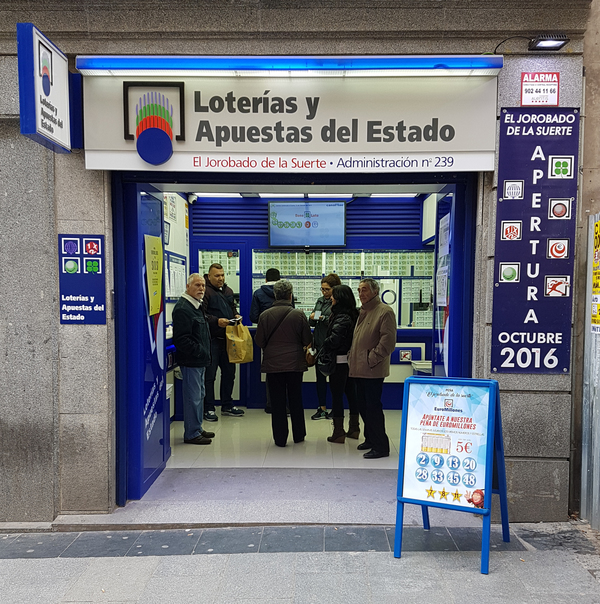
3. The Draw
The much-anticipated draw occurs on December 22nd, watched by millions on television and online. The event is orchestrated by schoolchildren from the San Ildefonso school in Madrid. They sing the numbers and corresponding prizes from two large tumblers, maintaining tradition and adding to the event's ceremonial feel.

Potential Prizes
The total prize pool for El Gordo is mind-boggling, often exceeding €2 billion, with many tiers of prizes to distribute.
1. El Gordo (First Prize)
-
The grand prize, or El Gordo, awards €4 million to a billete (or €400,000 per décimo). If a ticket holder has one décimo, they would receive €400,000 before taxes.
2. Second Prize
3. Third Prize
4. Fourth Prizes
5. Fifth Prizes
6. Smaller Prizes and "La Pedrea"
-
Numerous smaller prizes, such as the "La Pedrea" (the shower), award €1,000 per billete (€100 per décimo) for thousands of tickets.
-
Additional smaller prizes also include refunds for certain numbers, ensuring that many participants win something.
Taxes on Winnings
It's important to note that lottery winnings in Spain over €40,000 are subject to a tax rate of 20%. Therefore, winners of larger prizes will need to account for this deduction when calculating their net winnings.
Spain's Christmas lottery, El Gordo, is a cherished national event, bringing hope, excitement, and tradition together every December. With a generous prize distribution and widespread participation, it remains a staple of Spanish culture and a pivotal moment in the festive calendar. Whether you're a local or a visitor, purchasing a décimo offers a chance to partake in this beloved tradition and potentially change your life with the magic of El Gordo.
So, mark your calendars for December 22, 2024, and join the ranks of hopeful participants in Spain's iconic Christmas lottery
 3
Like
Published at 10:18 AM Comments (1)
3
Like
Published at 10:18 AM Comments (1)
Spam post or Abuse? Please let us know
|
|